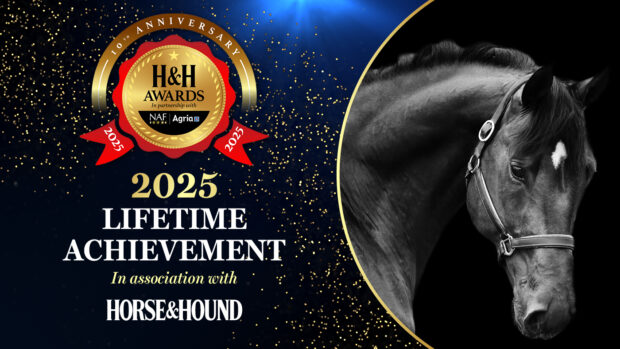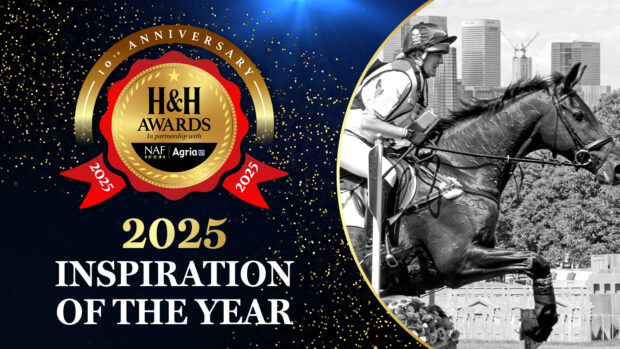Working relationships between grooms and employers can often be short and far from sweet. Bosses usually attribute the breakdown to loss of loyalty and old-fashioned work ethic, while grooms complain about being overworked, underpaid and unappreciated.
But if you dig hard enough you can uncover examples of working partnerships that have lasted for years and even decades. So what makes some partnerships successful while others crumble?
Dave Horton has been with the Bannister family for 28 years; Michael Bannister is joint-master of the Pendle Forest and Craven hunt, and the working partnership spans three generations.
Michael and his wife Ethne’s sons, Nick and Tom, started on the lead-rein with Dave.
“Now I’m helping their children,” he says with obvious pleasure.
Although the relationship is based on old-fashioned values, it is far from feudal.
“One reason we work well together is that we’re able to discuss things,” says Dave.
His boss agrees: “We sack each other at least once a year, but not for long!
The best hunting yards demand high standards; Dave insists that the smallest pony on the yard is turned out as smartly as Michael’s hunters.
Similarly, 20 years working for the legendary Betty Gingell, master of the Cambridgeshire Harriers, taught Rebecca Jarvis never to accept second best. It was trial by perfection.
“I was 18 when I started and it was my first job away from home,” recalls Rebecca. “I remember her saying, ‘If you don’t pull your finger out, I’ll send you home to your parents.’ She was very particular. You weren’t allowed to wash horses’ legs because of the risk of mud fever; you had to let the mud dry and get it off with your fingers.
“There were no hard brushes and you couldn’t use dandy brushes on tails – and you couldn’t pull a horse out of a box without picking its feet out first.”
The work was hard but the rewards were great. During her 12 full and eight part-time years with Mrs Gingell, Rebecca looked after horses and hounds and eventually whipped-in, still under the eagle eye of the master.
William Fox-Pitt’s headgirl, Jackie Potts, has worked for him for 11 years. She believes that they both thrive on pressure.
“William is particular about paying attention to detail, but very laid back,” she says.
“When you’re at a competition, you have to get on with the job without being stressed, or it wouldn’t work. I love the pressure – I love doing the 10-minute box. There is so much to do and I enjoy the challenge.”
Jackie joined the eventing world by chance rather than design. “I was going to America and had three or four months’ wait. I went to William, just for a week. I stayed on while they looked for someone permanent and then William got Chaka and went to Badminton. I thought, ‘I like this’. And here I am.”
Like many long-term grooms, Jackie becomes attached to her charges. “They become your friends. Fortunately, William isn’t a great one for selling horses. Moon Man, for instance, who is 13, came here as a five-year-old.”
Eileen Foxton – the first woman to become a recognised head lad in Newmarket – is a precious commodity. Born in Epsom, she started in racing at 13 and worked for Dermot Whelan for 12 years. Stints at other yards were followed by a move to Newmarket, where she clocked up 11 years with Ron Sheather – including six as head lad.
She thinks so much of one horse in her care that she delayed her retirement to see him run as a four-year-old.
During this time Eileen has seen many changes in the racing world; sadly, she believes one of them is the loss of the old-fashioned work ethic.
“Loyalty doesn’t exist any more,” she says. “Nowadays you get people who come to ride out, people who do evening stables and very few who want to work full-time. It makes the job hard for those who do, and the people who just ride out are earning more than those who work full-time.
“You’ve got to want to be good at what you do. Some people just want to come in and get paid – very few take pride in their work.”
Make or break
Relationships break down for many reasons: one of the most bizarre must be the employer who discovered that a seemingly generous offer from her groom’s partner to update a website had resulted in links to his own enterprise selling pornography. In most cases, though, the crunch comes through lack of recognition and low wages.
Lucy Katan, the British Equestrian Federation’s volunteer representative for grooms, is trying to raise their career profile, starting at the top. Recognition for elite grooms will, she hopes, kick-start a change in attitudes and conditions.
“The horse industry is prehistoric in working conditions, pay and time off,” she says. There are some fantastic employers, but those are the ones who keep their staff. In time, employers will learn that if they treat staff correctly, they will stay longer – and not only will horses perform better, it will be better for business.”
|
||
 |
||


 Get up to 19 issues FREE
Get up to 19 issues FREE TO SUBSCRIBE
TO SUBSCRIBE 


